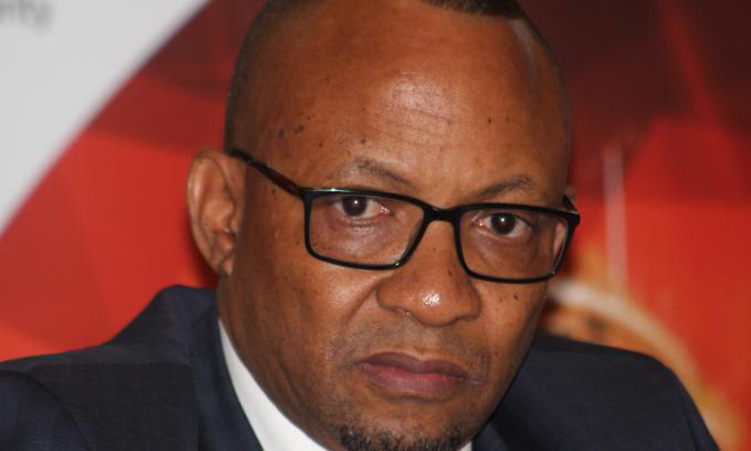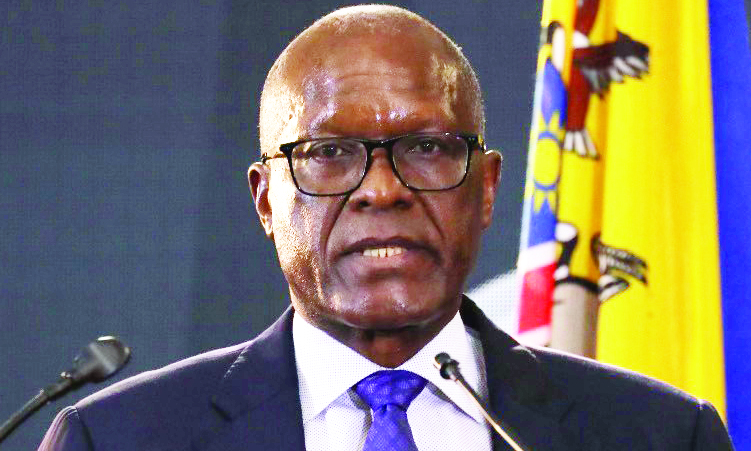Mines and energy minister Tom Alweendo says local companies should play a part in shaping the new oil regulating policy that will guide the industry.
He was speaking at the ongoing Namibian Local Content Conference yesterday at Lüderitz, where he also urged local businesses to take full advantage of the emerging oil and gas sector to accrue maximum financial benefits.
The Namibian has since last year reported how Namibia’s oil laws are being influenced by controversial figures, such as fraud-convicted NJ Ayuk and ReconAfrica’s Jay Park.
Alweendo yesterday invited local businesses to contribute to the improvement of the draft local content policy by expressing suggestions in writing on how best the policy can be improved to better benefit local businesses and communities.
The conference, among others, aims to set the foundation for Namibia’s local content.
“As the operators in local content, you need to be serious about it. We rely on Namibian business people to make sure that we are going to make this happen,” Alweendo said.
The concept of local content refers to the involvement and contribution of local businesses, workforce and resources in the development and operation of the emerging oil and gas projects.
“If we get it wrong from the beginning, we will never succeed,” Alweendo said.
Speaking at the event, petroleum commissioner Maggy Shino said local content development is not merely an aspiration, but a fundamental imperative for realising the full potential of the country’s petroleum sector and ensuring that its benefits are felt by all Namibians.
“It is about creating opportunities for local businesses to participate meaningfully in the petroleum value chain, from exploration and production to downstream activities,” Shino said.
She said the ministry’s petroleum directorate is working tirelessly to create an enabling environment that empowers Namibian companies to compete on a level playing field and contribute to the growth and diversification of the economy.
“Through targeted capacity-building initiatives, training programmes and skills development initiatives, we are equipping Namibian companies and individuals with the knowledge, skills and resources they need to thrive in the petroleum industry,” she said.
Speaking at the event, Jorge de Morais from Angolan company Kaeso Energy Services said Namibia needs to focus on providing exclusive benefits to its local population in order to take full advantage of its local content policies and plans. This includes offering exclusive services for local companies, exclusive employment opportunities for local workers, exclusive purchasing from local companies and encouraging investment within the country.
However, he noted that these measures must be implemented correctly.

Morais pointed out that Angola has been producing oil for over 50 years and today its service industry is valued at US$18 billion. He said despite this significant industry, only 2% of the revenue benefits local content in Angola.
“The fact that you have policies in place and the fact that you list exactly what needs to be done, does not guarantee that the country will have proper local content that will benefit the people,” De Morais said.
De Morais further said the reasons why local content is not achieved optimally is due to the lack of knowledge, skilled workforce, equipment, infrastructure, provision of basic services and the lack of finance.
The biggest among these, he said, is the lack of trust and corruption.
Anthony Paul, a local content expert from Trinidad and Tobago, said for better benefits, Namibia should provide a clear and stable regulatory framework for local content requirements and identify specific sectors for the development of local capacity.
“Maximise employment and development of Namibians, maximise the participation of local suppliers along the value chain, ensure the transfer of technology, knowledge and skills, and promote Namibian ownership and financing at all levels of the sector,” Paul said.
Namibia Chamber of Commerce and Industry president Bisey /Uirab said by promoting local content in the energy sector, Namibia can create opportunities for local businesses to thrive, contribute to job creation and stimulate economic growth.
“We believe that by prioritising local content development, we can build a more resilient and inclusive economy that benefits all Namibians. By working with the government, industry partners and civil society, we can ensure that our energy sector contributes to our nation’s long-term prosperity and well-being,” /Uirab said.
The three-day conference will conclude today.
Stay informed with The Namibian – your source for credible journalism. Get in-depth reporting and opinions for
only N$85 a month. Invest in journalism, invest in democracy –
Subscribe Now!






